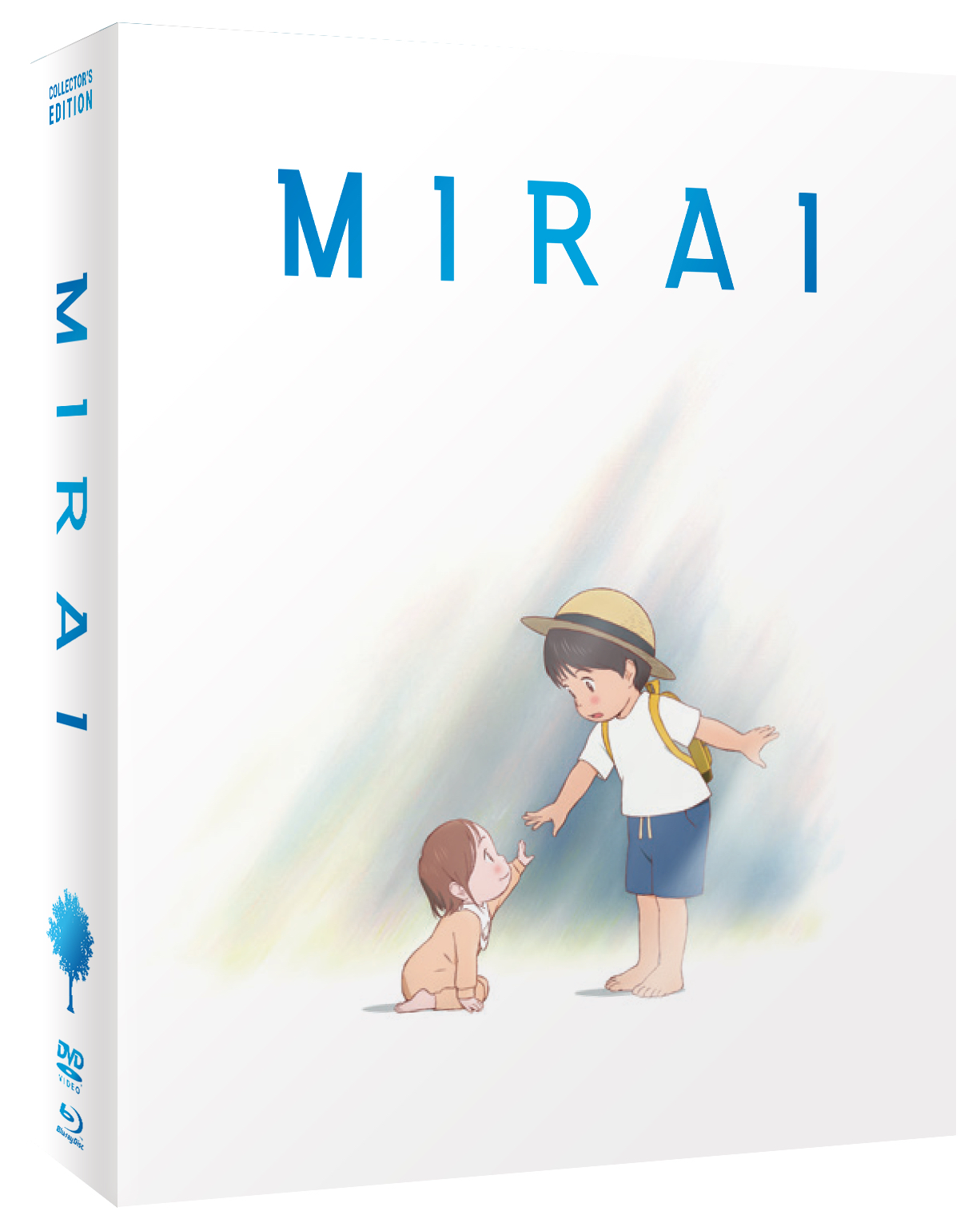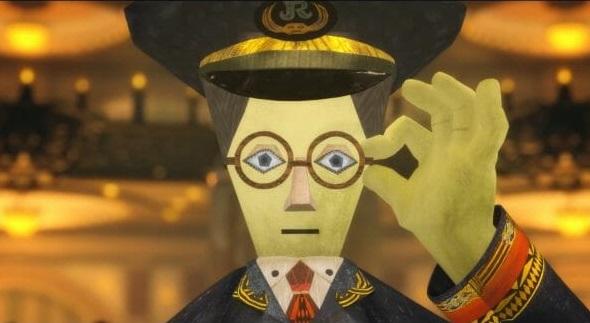Mirai made animation history when it was included in the Director's Fortnight at Cannes in 2018, the first Japanese anime feature to be so honoured. It went on to be nominated for an Oscar. Director Mamoro Hosoda, who worked at Studio Ghibli before creative differences on Howl’s Moving Castle led him to strike out on his own, has been described as the natural successor to anime master, Hayao Miyazaki. Certainly they share extraordinary artistry and a fascination with children and the fantasies they create.
The story revolves around a little boy, Kun, who lives with his architect father and mother in their modernist house. When he is presented with a new baby sister, Mirai, four-year-old Kun is furious at being displaced as the centre of attention. Hosoda is brilliant at capturing the physicality of the little boy and his baby sibling. According to the lengthy accompanying interview in the collector's edition, the animators modelled Mirai and Kun’s appearance on the director’s real-life children. Kun furiously tweaks the baby's ears and incurs his exhausted mother’s fury; he calls her a hag and she transforms into one in his mind's eye. Kun's father, who works from home, tries to keep the peace. But all this conflict is resolved through a series of fantastical encounters Kun has with members of his family – a distant ancestor, his mother when young, his grandfather, and Mirai herself as a teenager. Slipping through time, the film echoes classic narratives like A Christmas Carol, It’s a Wonderful Life and Tom’s Midnight Garden and the device allows for some stunning artwork and flights of fantasy. These adventures – whether Kun's fantasies or actual magic isn't made clear – enable him to love his sister and accept his place in the family.
 Mirai has some wonderful sequences and much to enjoy visually, especially when Kun finds himself alone in a cavernous Tokyo Station and meets a strange figure, the Lost and Found attendant. A quirky, robotic figure, he is animated in a very different style from the other characters, using cut-out art work. But there’s a faintly lecturing tone to the film, as if a child development manual has been thumbed through one time too many. The result is a film which isn’t as emotionally engaging as Hosoda’s earlier anime, Wolf Children or as inventive as his science fiction movie, Summer Wars. It's a shame that the narrative doesn't work so well here but it's possible to concentrate on Hosoda's painterly animation style and enjoy the documentary extras that come with this edition, including behind-the-scenes at the animation studio, the extraordinary storyboards, the collaborative voice-recording sessions with the actors, and a return to Hosoda's home town and the real-life locations that inspire his films.
Mirai has some wonderful sequences and much to enjoy visually, especially when Kun finds himself alone in a cavernous Tokyo Station and meets a strange figure, the Lost and Found attendant. A quirky, robotic figure, he is animated in a very different style from the other characters, using cut-out art work. But there’s a faintly lecturing tone to the film, as if a child development manual has been thumbed through one time too many. The result is a film which isn’t as emotionally engaging as Hosoda’s earlier anime, Wolf Children or as inventive as his science fiction movie, Summer Wars. It's a shame that the narrative doesn't work so well here but it's possible to concentrate on Hosoda's painterly animation style and enjoy the documentary extras that come with this edition, including behind-the-scenes at the animation studio, the extraordinary storyboards, the collaborative voice-recording sessions with the actors, and a return to Hosoda's home town and the real-life locations that inspire his films.
Watch the trailer for Mirai















Add comment